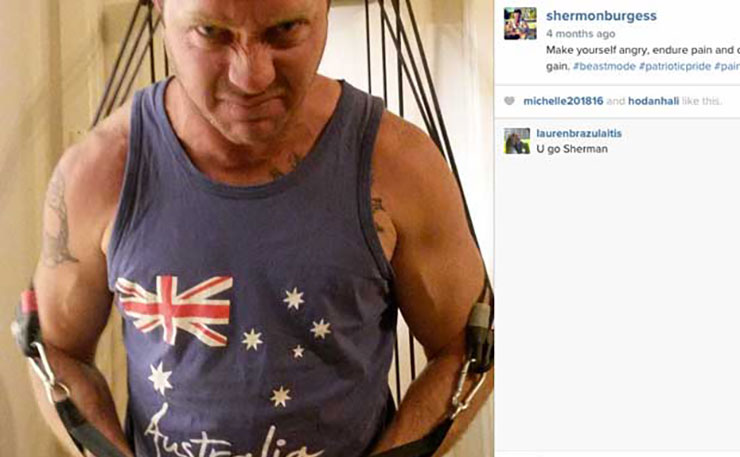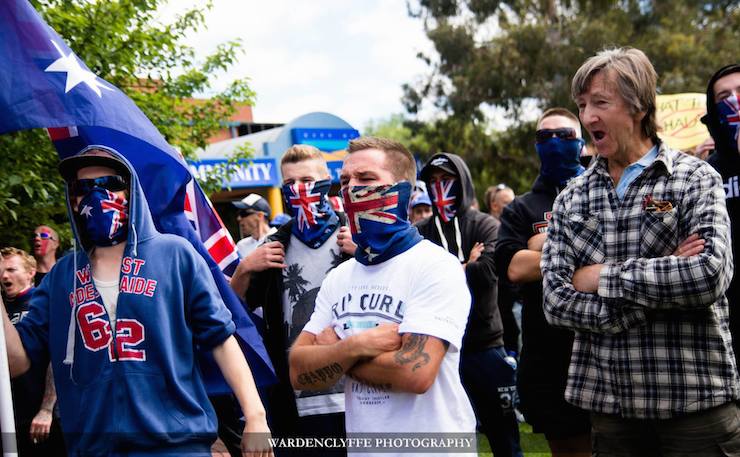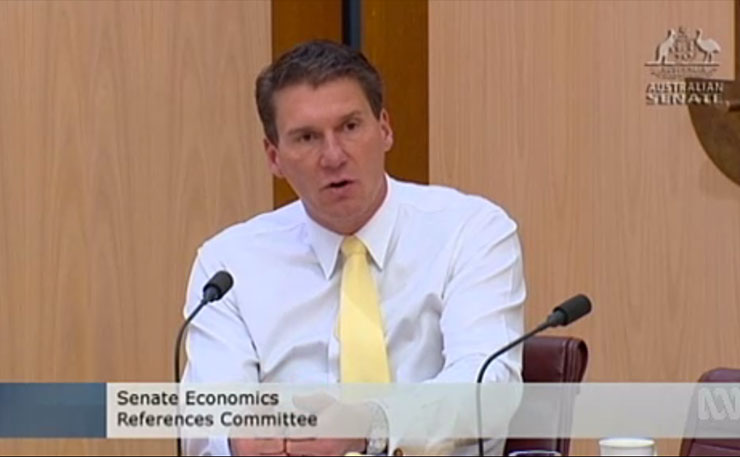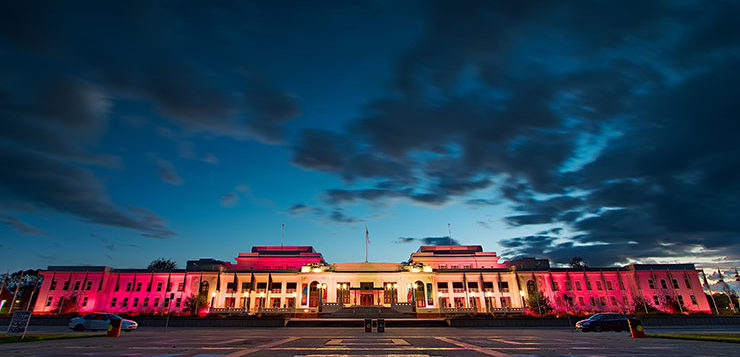Anyone confused about why the far right in Australia feels emboldened should probably tune into our federal parliament some time, writes Joshua Badge.
There have always been those who are made profoundly uneasy by ethnic and cultural diversity in this country, but as White Australia began to recede in the latter half of the 20th century those most intolerant of difference found themselves on the fringes of acceptable society.
The 1960s saw the rise of the Nationalist Socialist Party of Australia, but the explicit link to Nazism proved unpopular and the party dissolved before the end of the decade. Next came the Australian National Front which campaigned for warm relations with Britain and deporting non-white immigrants, but similarly fizzled out.
By the 1980s the militant National Action supplanted these groups. Notably, a splinter group of National Action engaged in a spate of assaults and firebombing which a judge memorably called a ‘months-long terrorist campaign’. With striking candour, ASIO’s 89-90 annual report concluded that the “only discernible threat of politically motivated violence comes from the racist right”.
Abandoning White Australia meant deserting such illiberal groups, and the public traditionally shunned far-right activity of this kind. Politicians, for their part, refused to engage with them or appeal to their sensibilities. In recent years, however, this is proving not to be the case.
At the forefront of this movement was Reclaim Australia, a protest group which held nation-wide anti-Islam demonstrations around 2015, and loosely associated with hate groups. Other organisations such as Party for Freedom claimed fame by posing for anti-Islam photo stunts and bearing signs which read ‘multiculturalism is genocide’.
Extremist groups swiftly followed, such as the neo-Nazi Antipodean Resistance which hosts radicalisation camps where members pose in front of swastikas and pledge allegiance to Hitler. Another group, the United Patriot’s Front, claims solidarity with a Greek neo-Nazi party and suggested hanging a portrait of Hitler in every classroom.
Most Australians may never have heard of such groups, but many will be familiar with their politics. Antipodean Resistance unsuccessfully attempted to influence the 2017 same-sex marriage postal survey with homophobic posters, while a Party for Freedom member organised a ‘straight lives matter’ rally.

Around the same time members of the United Patriots Front stormed a Yarra City Council meeting and later racially vilified former Senator Sam Dastyari. In November 2017, I watched as an otherwise peaceful demonstration descended into a riot after a well-known UPF member stole the microphone at an anti-detention rally and called all refugees ‘rapists’.
The ABC has detailed an alarming plan by a group of self-described fascists to stack the NSW Young Nationals, leading to an investigation of dozens of Nationals members. Several of the people under investigation seem to have appeared in Antipodean Resistance propaganda videos.

While it may be tempting to ascribe this issue to a faulty recruitment process or a single party, this would be too easy. The problem is not the procedures of any one party but a political culture in which extremists feel that their views are reasonable and welcome. Indeed, how could a member of a far-right group look at the recent events of Australian politics and not see their beliefs writ large?
For instance, senator Pauline Hanson stepped up passé rhetoric about an Australia being ‘swamped’ by immigrants to straightforwardly call for the internment of all Muslim citizens suspected of terror offences. Hanson has made a career out of mainstreaming Islamophobia.
Further, MP Bob Katter suggested banning Muslim immigration while Senator Jacqui Lambie argued for banning the burqa. Similarly, Senator Cory Bernardi proposed halving the rate of immigration even though Australia’s migrant intake hit a 10-year low in 2017.

More recently, former Senator Fraser Anning called for a return to the White Australia policy after appearing at a rally organised by a neo-Nazi group earlier this year. Anning additionally spoke of a ‘final solution’ to the ‘immigration issue’ which many interpreted as a reference to the extermination of Jewish people during WWII.
Finally, in an embarrassing lapse of common sense, the Government initially threw its support behind Hanson’s ‘It’s okay to be white’ motion. Senator Di Natale was quick to point out is a typical white supremacist slogan which we can trace back to the Nazi movement.
Following the Abbott Government’s bill to deport citizens suspected of terrorism and the Senate Inquiry into Halal certification back in 2015, a spokesperson for Reclaim Australia astutely remarked ‘it’s almost like a nod to us’.
It is critical that we ask ourselves: to whom does our political culture speak? Whom does it empower and whom does it marginalise? We must reject the normalisation of anti-immigrant rhetoric and race-baiting politics lest the most unsavoury groups should find new purchase in our society.
It is a sad reality that groups hostile to diversity and in want of inspiration need look no further than parliament, and it is likely that we will see the influence of these groups grow over time unless we change our political culture.
Donate To New Matilda
New Matilda is a small, independent media outlet. We survive through reader contributions, and never losing a lawsuit. If you got something from this article, giving something back helps us to continue speaking truth to power. Every little bit counts.




